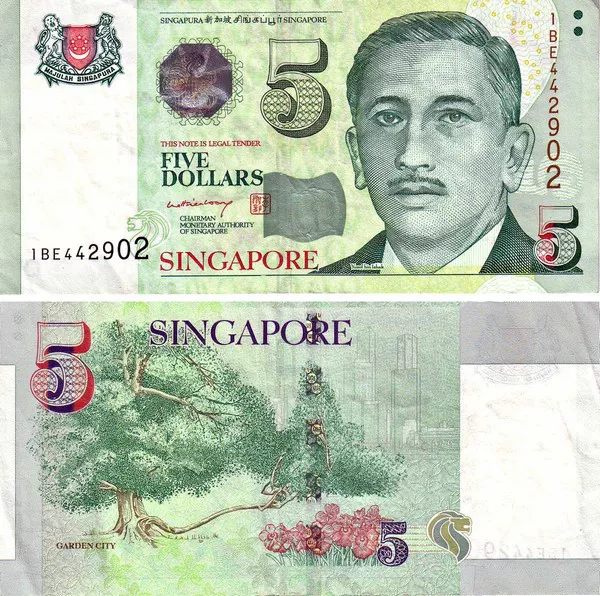When it comes to global finance and trade, Singapore stands as a shining example of a thriving economy in Southeast Asia. The city-state, often referred to as the “Lion City,” has managed to cement its place as a global financial hub. At the heart of this financial prowess lies the currency of Singapore, which plays a pivotal role in the nation’s economic landscape. In this article, we will explore the currency used in Singapore, its history, features, and its significance in the modern financial world.
The Singapore Dollar (SGD)
The official currency of Singapore is the Singapore Dollar, abbreviated as SGD. This vibrant, modern currency has come to symbolize the economic strength and stability of the city-state. The Singapore Dollar is often colloquially referred to as the “Sing Dollar” or simply “Dollar.
A Brief History of the Singapore Dollar
The history of the Singapore Dollar is a testament to the nation’s journey from a British colonial outpost to a global financial powerhouse. Before the introduction of the Singapore Dollar, various other currencies were used in Singapore, including the Indian Rupee, the Malaysian Dollar, and the British Pound Sterling.
It was in 1967 that the Monetary Authority of Singapore (MAS) took a significant step by introducing the Singapore Dollar to replace the Malaysian Dollar, which was previously in circulation due to Singapore’s brief union with Malaysia. This transition marked a crucial milestone in the nation’s economic development, allowing it to exercise control over its monetary policies and currency.
Design and Features of the Singapore Dollar
The Singapore Dollar banknotes and coins are renowned for their colorful and vibrant designs, featuring a blend of historical and modern elements. Currently, the Singapore Dollar has banknotes in denominations of $2, $5, $10, $50, $100, $1,000, and $10,000. Coins are issued in denominations of 5, 10, 20, 50 cents, as well as $1 and $5.
One of the unique aspects of Singapore’s currency is the intricate security features incorporated into the banknotes to deter counterfeiting. The designs often pay homage to Singapore’s diverse culture, featuring images of various ethnic groups, iconic landmarks, and historical events. These banknotes not only serve as a means of exchange but also as a reflection of the nation’s identity and heritage.
Exchange Rates and Monetary Policy
The exchange rate of the Singapore Dollar is determined by a managed float system, which means that its value is influenced by market forces while being actively managed by the Monetary Authority of Singapore (MAS). This approach allows for flexibility and stability in the exchange rate, ensuring that the currency remains competitive in the global market.
The stability of the SGD is a testament to Singapore’s sound monetary policies. The MAS employs a strong and prudent regulatory framework to control inflation, promote economic growth, and maintain the currency’s stability. Singapore’s well-respected financial institutions and a robust banking sector also contribute to the currency’s strength.
Internationalization of the Singapore Dollar
The internationalization of the Singapore Dollar has been a strategic goal for the government and financial authorities. The Singapore Dollar is often used in cross-border trade, making it an essential currency for businesses in the region. Several factors contribute to its growing international presence:
Financial Hub: Singapore has established itself as a global financial hub, attracting multinational corporations, investors, and financial institutions. This status has naturally led to the increased use of the SGD in international trade and finance.
Trade Agreements: Singapore has entered into numerous trade agreements and economic partnerships, allowing for the use of the Singapore Dollar in trade settlements. The currency’s stability and strong financial sector make it a preferred choice for businesses.
Investment Opportunities: Singapore’s burgeoning wealth management and investment sectors have drawn foreign investors. This, in turn, has led to an increased demand for the SGD for investment purposes.
Strategic Location: Singapore’s strategic location in Southeast Asia makes it a natural center for regional trade, and the Singapore Dollar has emerged as a convenient currency for businesses in the area.
Financial Innovations: Singapore has embraced financial technologies and innovations, which have made it easier for businesses to use the SGD for international transactions.
Challenges and Future Prospects
While the Singapore Dollar has gained international recognition and acceptance, it also faces certain challenges:
Global Economic Uncertainty: Global economic conditions and geopolitical events can impact exchange rates and the SGD’s role in international finance.
Competition: The Singapore Dollar competes with other global currencies like the US Dollar and Euro for international transactions. Maintaining its prominence requires continued effort and vigilance.
Technology and Cybersecurity: With the increasing use of digital currencies and online transactions, the need for robust cybersecurity measures is paramount to protect the integrity of the SGD.
Despite these challenges, the Singapore Dollar is poised for a promising future. The nation’s commitment to sound monetary policy, its status as a regional financial hub, and its investments in fintech ensure the SGD’s continued relevance in the global economy.
Conclusion
The Singapore Dollar is not merely a medium of exchange but a symbol of Singapore’s economic success and financial stability. Its journey from a colonial outpost to a global financial hub is a testament to Singapore’s dedication to economic growth and development. As the currency continues to play a pivotal role in regional and international finance, the Singapore Dollar stands as a testament to the nation’s unwavering commitment to progress, innovation, and stability in the global financial landscape.


